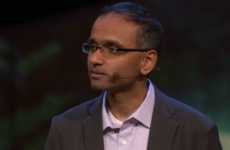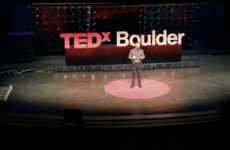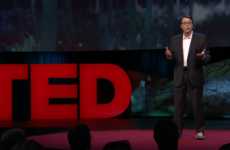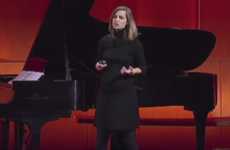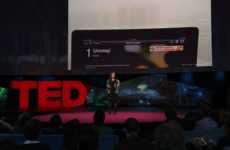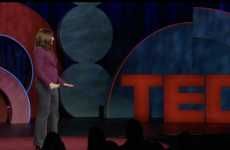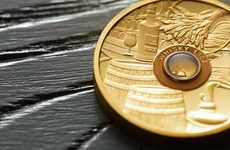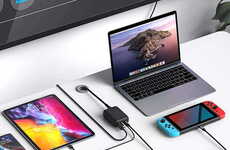
Need Inspiration?
Get inspired by 4,000+ keynote speaker videos & our founder, a top keynote speaker on innovation.
Morgan Vague's Talk on Plastic-Eating Bacteria Offers a Solution
Kalina N — May 29, 2019 — Keynote Trends
Morgan Vague — a microbiologist who is focused on providing sustainable solutions to the impending realities of climate change, delivers a talk on plastic-eating bacteria that highlights a potential solution to an aspect of the environmental crisis.
The keynote begins with some troubling facts — by 2050 there will be more plastic than fish in the ocean and only nine percent of plastic is recycled. These are both alarming statements as the material introduces harmful contaminants to our soil, our water, and our food. In the quest of countering the excessive use of plastic, Morgan Vague introduces bacteria as a “cheap, durable, [and] adaptable” way to address pollution on a grand scale. There are a number of benefits to plastic-eating bacteria. For one, these microscopic living things are everywhere — there is an estimated total of five million trillion trillion, and they are able to survive in extreme and diverse environments.
The talk on plastic-eating bacteria goes on to reveal some of the intricacies of Morgan Vague’s research. Firstly, she collected soil samples from EPA-designated Superfund sites. Her focus was on facilitating “a carbon-free media or a food-free environment” for the microscopic living organisms. To sustain life, the microbiologist introduced the most popular globally produced plastic — polyethylene terephthalate or, simply, PET. The experiment forces bacteria to adapt and, essentially, begin consuming PET plastic as the only means of nutrition. The speaker briefly dives in to reveal how her subjects process the durable, harmful material. This is done through the lipase enzyme that breaks the PET plastic into small chunks of sugar.
The process that Morgan Vague introduces during her talk on plastic-eating bacteria is a completely natural one. Through further research and troubleshooting, the scientific endeavor can contribute to creating “an industrial-scale contained carbon-free system, similar to a compost heap.” It will serve as one of the much-needed defenses against climate change and unethical consumption.
The keynote begins with some troubling facts — by 2050 there will be more plastic than fish in the ocean and only nine percent of plastic is recycled. These are both alarming statements as the material introduces harmful contaminants to our soil, our water, and our food. In the quest of countering the excessive use of plastic, Morgan Vague introduces bacteria as a “cheap, durable, [and] adaptable” way to address pollution on a grand scale. There are a number of benefits to plastic-eating bacteria. For one, these microscopic living things are everywhere — there is an estimated total of five million trillion trillion, and they are able to survive in extreme and diverse environments.
The talk on plastic-eating bacteria goes on to reveal some of the intricacies of Morgan Vague’s research. Firstly, she collected soil samples from EPA-designated Superfund sites. Her focus was on facilitating “a carbon-free media or a food-free environment” for the microscopic living organisms. To sustain life, the microbiologist introduced the most popular globally produced plastic — polyethylene terephthalate or, simply, PET. The experiment forces bacteria to adapt and, essentially, begin consuming PET plastic as the only means of nutrition. The speaker briefly dives in to reveal how her subjects process the durable, harmful material. This is done through the lipase enzyme that breaks the PET plastic into small chunks of sugar.
The process that Morgan Vague introduces during her talk on plastic-eating bacteria is a completely natural one. Through further research and troubleshooting, the scientific endeavor can contribute to creating “an industrial-scale contained carbon-free system, similar to a compost heap.” It will serve as one of the much-needed defenses against climate change and unethical consumption.
6.8
Score
Popularity
Activity
Freshness


